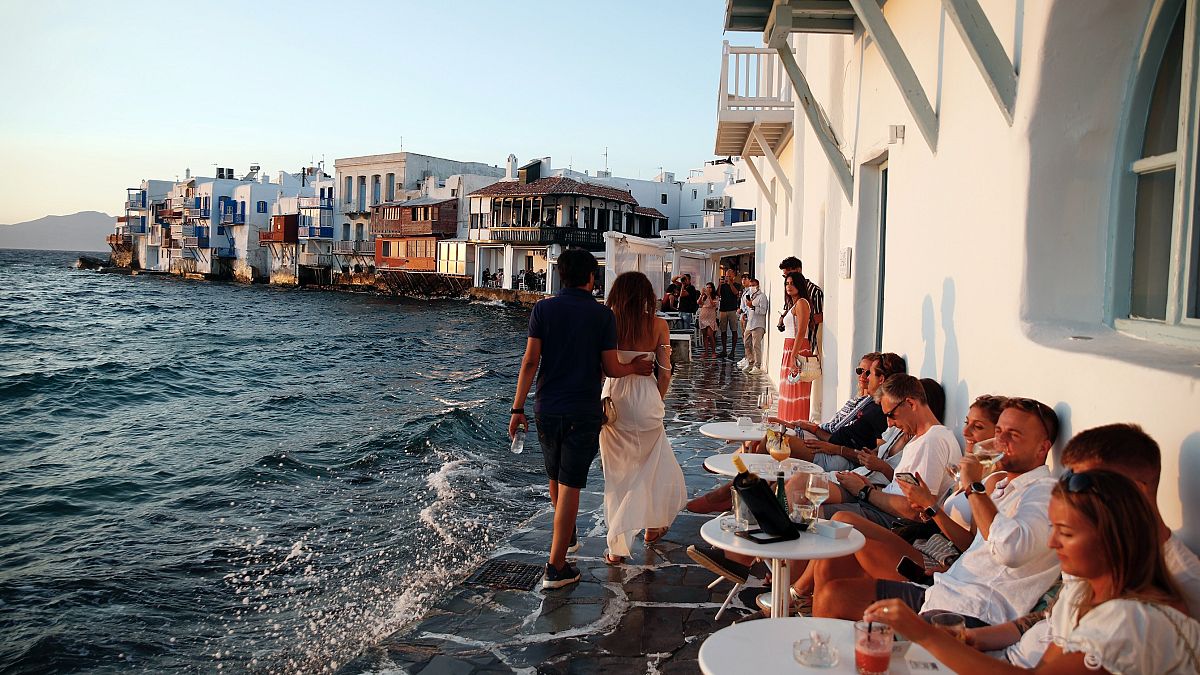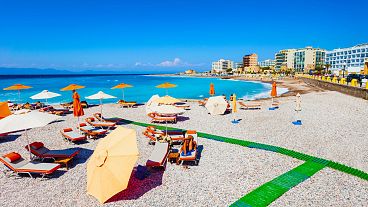Hotel prices and ticket costs are soaring in Türkiye as inflation hits tourism.
Turkish tourists are flocking to Greece as inflation makes it too expensive to travel within Turkey.
Inflation has surged in Türkiye in recent months, rocketing to 75.4 per cent in May, driven mainly by increases in hotel, cafe and restaurant prices.
“Actually, this problem started last year when the Turkish government took steps to suppress foreign currency,” Kıvanç Meriç, Chairman of the Izmir Regional Representative Board of the Association of Turkish Travel Agencies (TÜRSAB), tells Euronews Travel.
“This has led to the overvaluation of the Turkish lira in this inflationary environment,” he explains.
“Therefore, in the domestic market, our citizens have the chance to go abroad at a lower cost. At home, the price of hotels remains high.”
Hoteliers “do not raise their prices for higher profits”, Meriç emphasises. “On the contrary, our prices are also increasing due to the high costs.”
The crisis is not only impacting domestic travel in Türkiye.
“I have to say that there is a serious problem in Türkiye’s foreign tourist numbers as well,” says Meriç.
“While Türkiye was in a leading position in Europe, especially in the Mediterranean basin, with its service and hotel quality, it has lost this position due to its price disadvantage.”
A bleak picture for hotels in Turkey
It is usually impossible to find a hotel room in Türkiye’s main holiday resorts in July or August, according to Meriç.
In popular destinations along the Aegean and Mediterranean coasts, occupation rates are usually at 90 to 95 per cent. But this year those same hotels are lucky if they are at 80 per cent occupancy.
These hotels can’t depend on shoulder seasons, either. While many Mediterranean destinations see tourist arrivals from May through to October, the season is much shorter in Türkiye.
“The Turkish tourism sector makes money in the high season. It does not make money in April, May, September and October,” says Meriç. “The main money-making period is from mid-June to mid-September. We are now in the middle of July and we still haven't achieved the levels of occupancy we want.”
Hotel costs aren’t the only thing deterring travellers. Entry tickets to archaeological sites run by the Ministry of Culture and Tourism have also soared in price.
“In Türkiye entrance fees for archaeological sites are calculated in euros,” explains Meriç. “While it used to be possible to enter the ancient city of Ephesus for €15, it now costs €40.”
As a result, “cultural tours are dying”, he says. “Customers of cultural tours, especially travellers from distant regions, have started to prefer other countries such as Egypt.”
Where in Greece is popular with Turks?
Meriç goes on to say Turks are choosing to travel to Greece and Balkan countries because hotels are cheaper there.
He says the Greek island of Samos, separated from Türkiye by a strait just 1.6km wide, is especially popular with Turkish tourists.
“There is a serious boom. While 35,000 to 40,000 people travelled to Samos last year, this year's expectation is about 100,000 to 150,000 people.”
The island of Lesbos, also just off the coast of Türkiye, is also busy with Turkish tourists. It is known for its history, beautiful beaches and popularity with LGBTQ+ travellers.
Lesbos was especially busy during Türkiye’s three-day weekend this month, when queues formed at the border.
Do Turkish people need a visa for Greece?
Part of the appeal of Greece for Turkish travellers is a new visa scheme announced in April this year.
It opens up 10 Greek islands to Turkish passport holders for up to a week without having to apply for full access to the EU’s Schengen Area.
The islands in the visa programme all lie near the Turkish coastline. They include Lesbos, Limnos, Chios, Samos, Leros, Kalymnos, Kos, Rhodes, Symi and Kastellorizo.
Previously, Turkish visitors faced a lengthy visa process via the Greek Consulate in Izmir.
Granted at participating Greek ports, the new visa costs €60 per traveller and includes a passport check and fingerprint recording.















